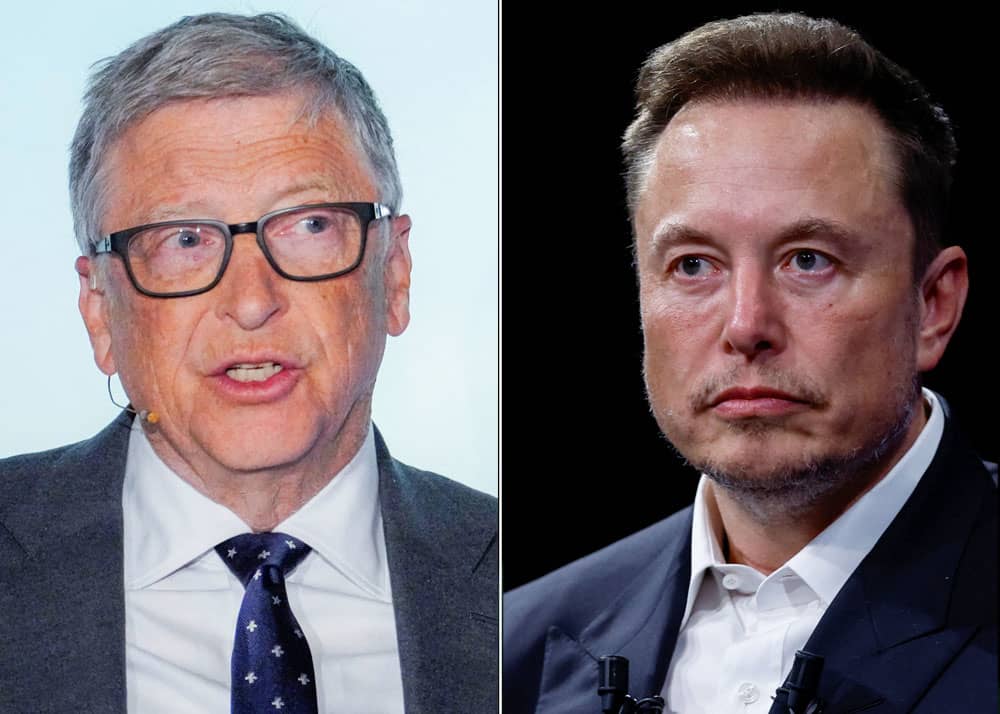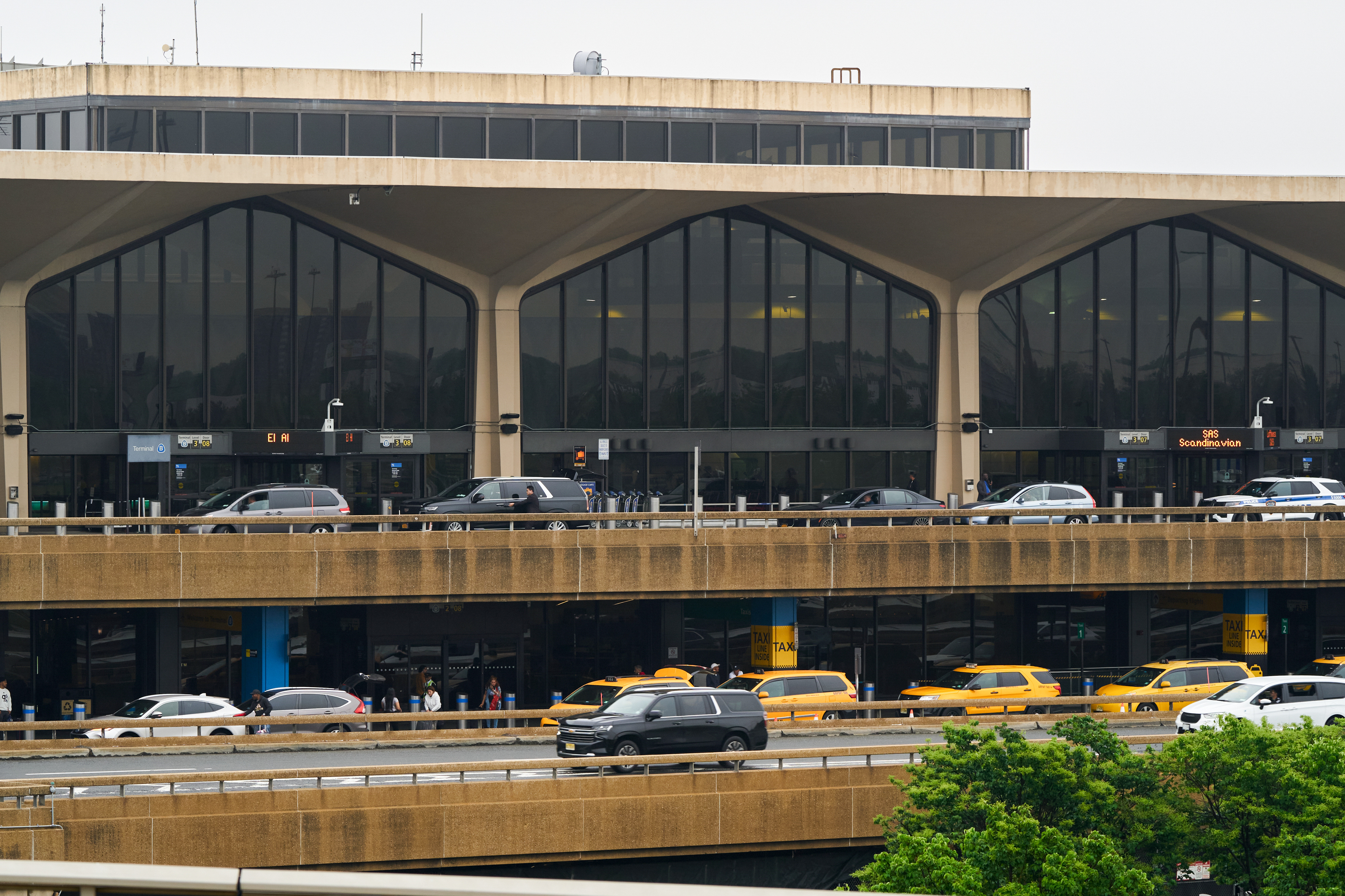Elon Musk Accused: Aid Cuts Killing Children, Gates Donates All
Bill Gates Blasts Elon Musk: Aid Cuts "Killing Poor Children" While Gates Gives Away Fortune
Introduction: A Billionaire Battle Heats Up
The gloves are off, folks! It's a heavyweight clash in the world of billionaires, and this time, it's not about rockets or electric cars. It's about philanthropy, foreign aid, and, according to Bill Gates, the lives of the world's most vulnerable children. Gates, the co-founder of Microsoft, has publicly accused Elon Musk of actions that are directly harming impoverished communities, specifically by allegedly cutting funding to crucial international aid programs. He made these accusations as he announced he would donate his remaining wealth to the Gates Foundation. But what's the story behind this feud, and are Gates' accusations justified?
Elon Musk's DOGE and Foreign Aid Cuts
According to reports, Musk’s Department of Government Efficiency, known as DOGE, effectively shut down the U.S. Agency for International Development (USAID) in February. Is this a genuine attempt at streamlining government, or something more sinister? Musk’s motives are definitely under the microscope.
Gates' "Killing Poor Children" Accusation
Gates didn't mince words in a recent interview with the Financial Times. He bluntly stated that Musk’s alleged cuts to USAID risk a resurgence of diseases like measles, HIV, and polio. He went as far as to say, "The picture of the world's richest man killing the world's poorest children is not a pretty one." That's a powerful statement, isn't it?
The Ripple Effect of Aid Cuts
What exactly are the potential consequences of cutting funding to USAID? Think about it. These funds support programs that provide essential vaccines, medical supplies, and healthcare infrastructure to developing nations. When that lifeline is cut, the most vulnerable populations are the ones who suffer the most.
Musk's Silence and DOGE's Purpose
As of now, representatives for Musk and DOGE have not issued a public response to Gates' accusations. This silence leaves many wondering: What is DOGE's ultimate goal, and how does it justify cutting funding to programs that are literally saving lives? Is this simply a case of bureaucratic streamlining gone wrong, or is there a deeper ideological motivation at play? The world is waiting for an explanation.
The Gates Foundation: A contrasting Approach
While Musk is being accused of cutting aid, Gates is doubling down on his philanthropic efforts. His announcement that he will donate his remaining fortune to the Gates Foundation highlights a fundamentally different approach to solving global problems. It begs the question: are we seeing two different philosophies of wealth management clashing?
Gates' Commitment to Global Health
The Gates Foundation has been a major player in global health initiatives for years, funding programs that fight diseases like polio, malaria, and HIV/AIDS. Gates' dedication to these causes is well-documented, making his criticism of Musk even more pointed. For instance, the foundation works tirelessly to increase access to sanitation and clean water in developing countries.
The Politics of Philanthropy
It's easy to see philanthropy as purely altruistic, but it's often intertwined with political and economic considerations. Billionaires like Gates and Musk wield immense influence, and their decisions about how to spend their money can have far-reaching consequences. Philanthropy is, essentially, power.
The Debate Over Foreign Aid
The effectiveness of foreign aid is a long-standing debate. Some argue that it's a crucial tool for poverty reduction and global stability, while others claim that it's often mismanaged or ineffective, leading to dependency and corruption. Is there a middle ground?
Impact on Global Health Initiatives
The potential impact of Musk's alleged aid cuts on global health initiatives is significant. Programs that rely on USAID funding could be forced to scale back or even shut down, jeopardizing years of progress in combating diseases and improving healthcare access. This is a crisis in the making.
The Court of Public Opinion
In the age of social media, public perception can be a powerful force. Gates' accusations against Musk are sure to spark a heated debate online, with people taking sides and weighing in on the merits of each billionaire's approach to philanthropy and global development. Will public pressure influence Musk's actions? Time will tell.
The Ethical Implications
This situation raises profound ethical questions. What responsibilities do the world's wealthiest individuals have to address global poverty and inequality? Is it acceptable to prioritize efficiency over humanitarian concerns? These are complex issues with no easy answers.
Beyond the Headlines: Understanding the Nuance
It's important to remember that this is a complex situation with many layers. While Gates' accusations are serious, it's crucial to avoid simplistic narratives and consider the broader context of global development, foreign aid, and the different approaches to philanthropy. Are there any positive, less publicized benefits to the changes made by Musk?
A Call to Action
Regardless of where you stand on this issue, this controversy should serve as a call to action. We all have a role to play in addressing global poverty and inequality, whether it's through individual donations, advocacy, or simply staying informed about the issues. Let's make our voices heard.
The Future of Philanthropy
The clash between Gates and Musk highlights the evolving landscape of philanthropy. As wealth becomes increasingly concentrated in the hands of a few, the decisions these individuals make about how to use their resources will have a profound impact on the world. What will philanthropy look like in the future? Only time will tell.
Conclusion: A Pivotal Moment for Global Aid
The accusations leveled by Bill Gates against Elon Musk, alleging harm to impoverished children due to foreign aid cuts, present a critical juncture in the debate over global responsibility. As Gates pledges his remaining wealth to the Gates Foundation, the stark contrast with Musk’s perceived actions demands reflection. The true impact on global health initiatives remains to be seen. This situation serves as a wake-up call to all, urging engagement and informed discussion on how to best address poverty and inequity.
Frequently Asked Questions
Here are some frequently asked questions to help you better understand the controversy:
- What specific USAID programs are allegedly being affected by Musk's actions?
The exact programs affected are not fully disclosed, but concerns center around those providing vaccines, medical supplies, and healthcare infrastructure in developing nations. - Has Elon Musk or DOGE responded to Bill Gates' accusations?
As of the time of this article, neither Elon Musk nor representatives from DOGE have issued a public response. - How much money does the Gates Foundation typically donate annually to global health initiatives?
The Gates Foundation donates billions of dollars annually to global health initiatives, making it one of the largest private funders of such programs. - What are some alternative viewpoints on the effectiveness of foreign aid?
Some critics argue that foreign aid can be ineffective due to mismanagement, corruption, and the creation of dependency, while proponents maintain its vital role in alleviating poverty and promoting development. - How can individuals contribute to global health initiatives beyond donating to large organizations?
Individuals can contribute by volunteering with local or international organizations, advocating for policies that support global health, and making informed purchasing decisions that support sustainable development.

